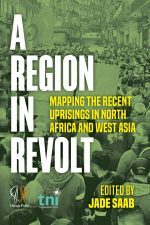Dispossessed is a poetic representation of life in three stages through the eyes of a poet. It shows, from the thematic interests of the poet; what he considers the crucial stages in life – Innocence, Transgression and Atonement.
Innocence offers a racy view of the picture gallery of the poet’s life as a child. The sensibilities of the poet shine through the foliage of his mind as he pines for self-definition; seeking open ears for his verses. But it is also a period of apprenticeship as the poet hones his skills for the artistic long journey that is inevitable. Clothed in the innocence of childhood, he learns to talk in metaphors and search for himself in the community of imaginative people. This search lights up the path into the poet’s aesthetic mindscape and the silent questions that keep him awake. Innocence is therefore a thirst for sunlight; a quest for utterance.
The unwary reader is beckoned into the quest through poems that evoke memories of their own childhood and conscript them into the ensuing communal experience. However, the human condition abhors inertia. But for any form of natural or artistic growth to occur, the poet must lose his innocence. So, Innocence and its poems of idyllic childhood soon give way to the unexpected — Transgression. Transgression is the coming of age segment of the collection. The poet discovers love. And slowly, he finds himself taking a dip in a pool of emotion that appears to serve as the ultimate sparkplug for his songs.
In essence, Transgression eases the reader into a rare observatory; from where the poet could be seen falling in and out of love and celebrating one of the most profound experiences known to man. It must be noted that in some instances, the love poems of Transgression are also not what they seem on the surface. In some instances, the poet addresses his troubled relationship with his country through poetry; mirroring his personal frustrations and disappointment in verses that come off as a voice of disenchantment. Caught in the firm grip of emotions, the poet changes like the English weather.
But after waves of emotional whirlwinds in Transgression, the poet faces the next logical step — Atonement. Atonement presents a poet who has undergone the rites of passage and weaned himself of self-doubts. He has washed his hands clean and must settle down to a fireside dinner with the elders. But as it turns out, the poet is not only seeking the ears of his genealogical ancestors and elders; he is also seeking the counsel of serious poets, past and present whose nod he needs to take on the weighty issues of his time. So, he comes with a “fistful of kolanuts” as is customary with his people who supplicate their elders and ancestors with kolanuts. In gaining entry into this conclave of his biological and artistic ancestors, he acquires the aesthetic authority to ask weighty questions about the world around him. He is incensed by what assails his sensibilities; a world that turns a blind eye to injustice and a humanity that needs an open heart surgery.
Atonement could also be seen as the poet’s personal admission that serious poetry ought to speak to the dominant issues of the day; the anxieties and insomnia of the age. He muses about these issues; posing rhetorical questions in about them in some instances.
In the end, dispossessed is one man’s journey that finally assumes all the attributes of a communal voyage. Treading in the imagined interstices between the personal and the communal, dispossessed leads us to a clearing in the woods where our awareness of our world heightens with the turning of every page.
James Eze was born in Enugu, southeast Nigeria, shortly after the Biafran War. He was the pioneer Literary Editor of Sunday Sun. As Head of External Communications at Fidelity Bank, he worked in partnership with the novelist Chimamanda Adichie to begin her popular International Creative Writing Workshop series. He is the curator of Under African Skies which hosts A Flutter in the Woods; a yearly evening of poetry and songs in Awka, Anambra State. He also co-founded The Return to Idoto, a poetry festival in honour of Christopher Okigbo. His poems have appeared in Camouflage: Best of Contemporary Writing from Nigeria.









